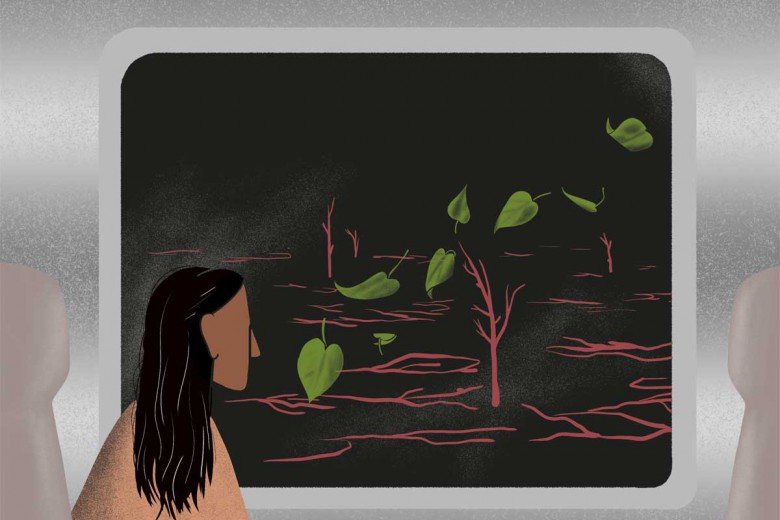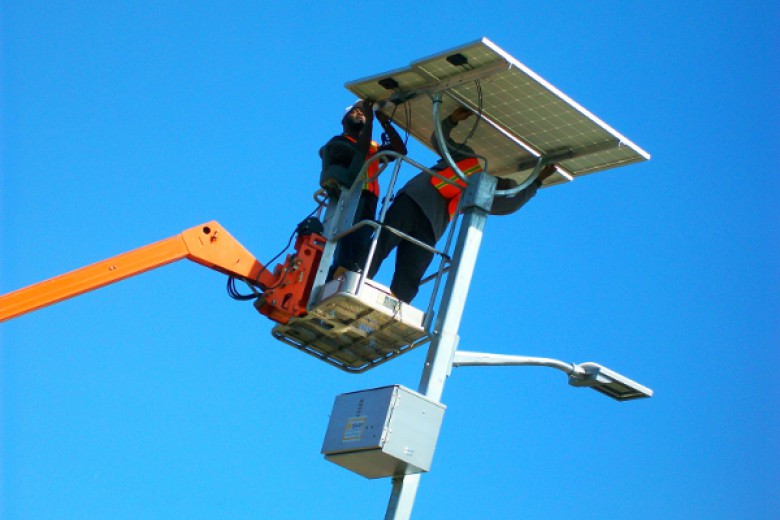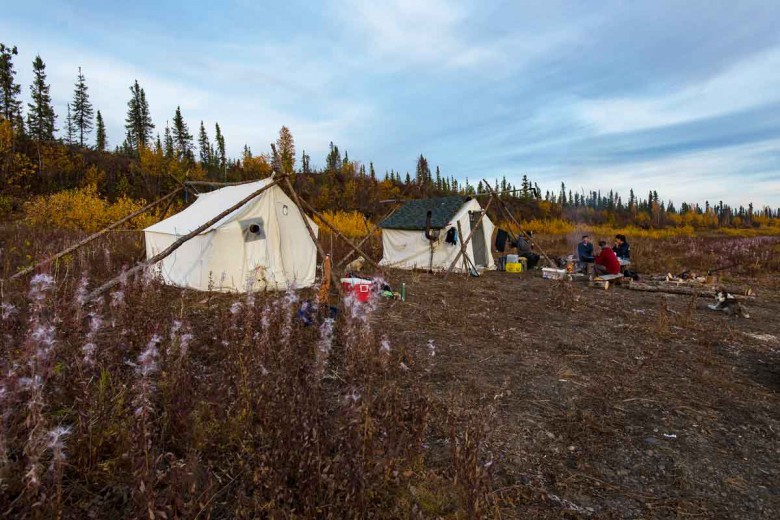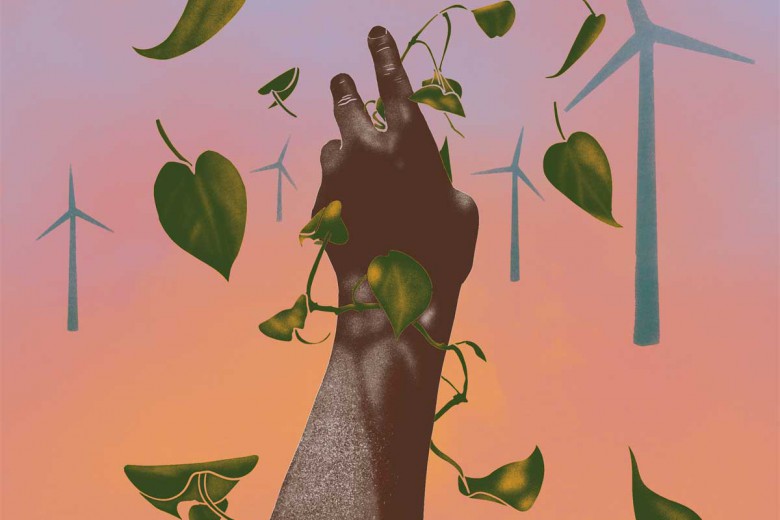In June 2022, a 24-year-old UPS driver, Esteban Chavez, died while delivering packages in the blistering L.A. heat. Although his cause of death is still under investigation, his family believes that heat was the cause of the young man’s death. He wouldn’t be the first delivery driver – nor the youngest – to die of heat-related illness on the job. UPS workers and union leaders say heat exhaustion and heat stroke are becoming more common as the climate crisis drives heat waves. It’s a growing hazard that reflects both our physical environment (the planet is getting hotter) and our economy (products must be bought, sold, and delivered, no matter the cost).
The devastating toll that broiling heat takes on the bodies of the workers that must labour outdoors is an example of the ways in which we feel the effects of climate change not only because the climate is changing, but also because of the way our society is organized within that changing climate. “There is no doubt that [climate change] has far-reaching effects,” David Camfield writes in his upcoming book Future on Fire. “But it always affects people in the context of the specific society in which they live. How a society is organized is fundamental to how climate change affects people.”
Future on Fire assumes its readers do not need to be convinced that climate change is real and caused by humans, and asks instead, “who will save us?” It will not be capitalist technocrats like Elon Musk. Camfield is an ecosocialist, and in Future on Fire he argues – perhaps unnecessarily, for the majority of those who read this book – that a break from capitalism is non-negotiable in the fight against climate change. “There is no more reason to believe that iconic capitalists and their unhyped fellow business owners will lead us on a path away from ecological disaster and social degradation than there is to suppose that positive thinking cures cancer and attracts wealth,” he writes.
But if capitalists can’t save us, surely the government – if we apply enough pressure, if enough progressives run for office – will? Camfield acknowledges an argument made by some on the left, who feel that only the state has the authority and resources necessary to bring about a just transition in time to save the environment and civilization. These people “are not wrong to stress the importance of state power, and especially at its central or federal level,” he says. The mistake is “confusing being in office with being in power.”
“Capitalist states are not neutral instruments,” Camfield writes. That is, the tune they play does not change all that much depending on who is playing it. Green left governments “cannot easily use” such states to enact the kind of sweeping changes necessary for enacting energy transitions that will improve quality of life for the majority, nor can they be effectively used to change the dynamics between Indigenous and non-Indigenous people in settler states like Canada and the United States.
The power of capitalists, particularly fossil fuel companies, is so great that even a government with majority support from citizens that was staunchly committed to redistributing wealth, cutting emissions, and weakening the stranglehold capitalists have on society would face opposition, including investment strikes from corporations, pressure from credit rating agencies, and global markets that would cause catastrophic disruption. And that disruption would most harm those who are already made vulnerable and oppressed in our existing social structures. “To weaken those political obstacles sufficiently that a government could get a just transition underway would take massive pressure of the kind that only movements can unleash,” Camfield argues.
Seeking governing power places limitations on a social movement’s ability to remain independent, hindering its ability to apply sustained pressure on institutions. According to Camfield, “an extraparliamentary strategic approach doesn’t mean ignoring elections but approaches them from the perspective of trying to take advantage of every opportunity to build movements.”
Although Camfield believes that mass social movements are the key to creating the conditions in which a just transition is possible, he is critical of some of the movements that have grown up around this cause, including Extinction Rebellion (XR). According to Camfield, XR’s strategy of organized, non-violent civil disobedience is based on fundamental misunderstandings of the way power functions in capitalist societies. XR “mistakenly assumes that activist willpower is enough to trigger an uprising,” Camfield writes. And the group’s call for governments to create – and heed – unelected citizens’ assemblies misunderstands the enormity of the obstacles that lay between governments and meaningful change.
A more meaningful intervention requires looking toward exploited and oppressed people who are already in motion, be it against racism, austerity, police violence, attacks on reproductive freedom, low wages, or other forms of structural oppression. “Wherever there is collective action against injustice,” Camfield notes, “there can be potential for organizing that aims to expand that action and build movements.” This requires becoming involved in community and workplace organizing that may not be directly related to climate justice. “It’s possible for supporters of climate justice to participate in a mobilization about other issues and, over time, promote convergences among movements and persuade more people of the importance of striving for a just transition.”
Camfield is also critical of the ability of sabotage – like targeted attacks on pipelines and other fossil fuel infrastructure that is most famously advocated for by Swedish climate activist Andreas Malm – to bring about the systemic change necessary to limit climate change and produce a fairer and more equitable society. According to Camfield, Malm makes a convincing argument that such attacks are ethical, but that doesn’t mean that they are effective.
Camfield believes such attacks are unlikely to meaningfully interrupt capitalist production, claiming that while they may harm the profits of some corporations, there is little possibility that they will compel governments to take decisive action in favour of decarbonization. Such attacks also draw more attention – and more state repression – to the climate movement, hindering the organizing abilities of both saboteurs and non-saboteurs alike. This kind of attention and repression would interfere with the ability of activists to engage in more meaningful direct actions, like strikes, occupations, and blockades. Such activists must also operate in small, clandestine groups, preventing them from being a part of mass movement building, leading to elite radicalism that is, by its nature, exclusive and stunted.
Instead, Camfield advocates for a different sort of interference with fossil fuel infrastructure, such as blockades of the transportation networks that move fossil fuels to market and civil disobedience and occupations like the grassroots, anti-capitalist Ende Gelände movement in Germany, which holds annual occupations of mines that draw thousands, as well as building capacity through smaller actions and anti-racist organizing.
Future on Fire also engages with the bleak possibility that we cannot (or will not) be able to arrest climate change quickly and effectively enough to keep the global temperature from rising above 2°Celsius. It’s not uncommon to hear climate experts and organizers say that if we fail to slash emissions by 2030, it’s game over. It’s a sense of urgency that’s warranted. But it also poses challenges to those who wish to organize. While anger can be a catalyst, despair is an obstacle.
Thinking and communicating in such all-or-nothing terms creates a sense of despair which “makes it harder for [people] to take part in collective action for climate justice.” Not only this, but it may push people toward the kind of climate politics that don’t address or challenge social injustice, like ecofascism. “An endless range of reactionary policies could be justified in the name of saving Earth. All-or-nothing thinking about cutting GHG emissions encourages acceptance of such policies,” Camfield writes.
In the event that climate change does exceed 2, or even 3 and 4 degrees Celsius, Camfield argues that it will be more – not less – important for us to restructure our society in a way that is just and equitable, and to push beyond a just transition, to a just adaptation. And as difficult as it is to comprehend or even consider such bleak possibilities, we can be sure that ruling-class intellectuals are considering them, and that they are busy trying to formulate a way to adapt to such possibilities in a way that will leave existing power structures intact. “Everywhere we can expect ruling-class adaptation and mitigation schemes will make a disproportionate share of the costs fall to those who are not rich and powerful,” Camfield writes.
Camfield believes that hope is essential for the fight, and that no matter how bad things get, it will remain essential. In that vein, Future on Fire points to many radical traditions and movements that fought through unimaginably dire circumstances. It is necessary, he argues, for us to “appreciate how even in very dangerous and difficult conditions people have not just survived but also held on to unpopular principles and continued to fight for liberation.”
While Camfield is clear that Indigenous experiences of colonization are “fundamentally unlike anything non-Indigenous people in advanced capitalist countries will ever undergo,” we can still learn from Indigenous people’s experiences living in a post-apocalyptic society – a society in which they continue to resist, continue to struggle, and continue to remain fundamentally and unequivocally human. He quotes Malm, who wrote about the Palestinian culture of sumud, or steadfastness. “Learning to fight – not die – and to nourish some climate sumud” will be how to survive in a climate change–wracked world.”
Future on Fire is a book that is frank in its assessment of the staggering scope of the challenges we face, and the immense strength of the power structures that prevent us from achieving our goals. But no matter how bad things get, as long as there are humans alive on this planet, “it matters what their social conditions are.” However heavy the burden may feel, “supporters of climate justice have an ethical responsibility to continue to struggle, regardless of how frightened we are.” As Camfield writes, “even a ravaged planet is worth fighting for.”







